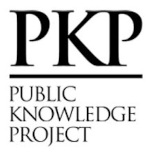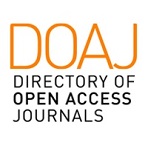Informal learning tracking in the perspective of learning throughout life
DOI:
https://doi.org/10.29147/dat.v5i3.267Keywords:
Informal learning, lifelong learning, learning tracking, xAPI with LRSAbstract
Considering learning as a continuum, based on experience, context and individual background, which is acquired and manifested in multiple spaces, it is necessary to assume that most of what we learn does not happen in traditionally educational spaces. This scenario imposes the need to discuss and reveal more of a hidden learning that happens informally. This study seeks to address strategies
for tracking and recognizing informal learning, which manifests itself in multiple moments and spaces. From the perspective of learning ecosystems, analyze different strategies, especially the TLA xAPI as an alternative for capturing or tracking, analyzing and inform learning. In this way, we discuss the challenges and oportunities to add more elements to the individuals’ learning biography.
Downloads
References
ADL. The Advanced Distributed Learning Initiative. 2019.
ALHARBI, M. T.; PLATT, A.; AL-BAYATTI, A. H. Personal Learning Environment. International Journal for e-Learning Security (IJeLS), v. 3, n. 1, p. 280–288, 2013. DOI: https://doi.org/10.20533/ijels.2046.4568.2013.0036
BENEDEK, A. Learning experience design in light of the MOOC contorversy. Hungarian Academy of Sciences, Resarch Centre for the Humanities, p. 4392–4402, 2014.
BERKING, P. Choosing a learning record store (LRS), p. 1–65, 2016.
BETTS, B.; SMITH, R. The learning technology manager’s: Guide to xAPIH2tLABS Company Publication, 2019. Disponível em:
CARNEIRO, R. Discovering the treasure of learning. Making lifelong learning a reality for all: Conceptual evolutions and policy developments In Yang, J, n. Hamburg: UNESCO Institute for Lifelong Learning, p. 3–23, 2011.
COOPER, A. Learning Analytics Interoperability - a survey of current literature and candidate standards. 2013.
CUINEN, S. et al. Informal learning guide: A systematic mix-method study of learning analytics for informal learning in the workplace: the what, why and how. EAPRIL European Asso - ciation for Practitioner Research on Improving Learning, 2015.
DOWNES, A. XAPI Explained Part1. Watershed Company Publication, p. 1–5, 2019.
DURCHLACH, P. J.; JOHNSON, A. Advanced Distributed Learning Initiatives. Journal of Advanced Distributed Learning Technology, v. 2, n. 6, p. 136, 2014.
ERAUT, M. Informal learning in the workplace. Studies in Continuing Education, v. 26, n. 2, p. 247–273, 2004. DOI: https://doi.org/10.1080/158037042000225245
FLANAGAN, B.; OGATA, H. Integration of learning analytics research and production systems while protecting privacy. ICCE 2017 - 25th International Conference on Computers in Education: Technology and Innovation: Computer-Based Educational Systems for the 21st Century, Workshop Proceedings, p. 355–360, 2017.
FOLSOM-KOVARIK, J. T.; RAYBOURN, E. M. Total Learning Architecture (TLA) Enables Next-generation Learning via Meta-adaptation. Interservice/Industry Training, Simulation, and Education Conference (I/ITSEC) 2016, n. 16279, p. 1–13, 2016.
GALLAGHER, P. S. et al. Total Learning Architecture Development: A Design-Based Research Approach. Interservice/Industry, Training, Simulation and Education 2017 Conference, n. 17117, p. 1–12, 2017.
GARCÍA-PEÑALVO, F. J. et al. Problems and opportunities in the use of technology to manage informal learning. Proceedings of the Second International Conference on Technological Ecosystems for Enhancing Multiculturality - TEEM’14, p. 573–580, 2014. DOI: https://doi.org/10.1145/2669711.2669958
GARCÍA-PEÑALVO, F. J. et al. A case study for measuring Informal Learning in PLEs. International Journal of Emerging Technologies in Learning (iJET), v. 9, n. 7, p. 47, 2014. DOI: https://doi.org/10.3991/ijet.v9i7.3734
HALL, B. L. et al. Learning and education for a better world: The role of social movements. Malta: Sense Publishers, 2012.
HALLIDAY-WYNES, S.; BEDDIE, F. Informal learning: At a glance. National Centre for Vocational Education Research NCVER, p. 1–12, 2009.
HOEL, T.; CHEN, W. Learning Analytics Interoperability - Looking for low-hanging fruits. Workshop Proceedings of the 22nd International Conference on Computers in Education, ICCE, 2014.
IDRISSI, A. EL B.; MAATI, M. L. BEN; HADDIOUI, I. EL. xAPI: succeeding SCORM as the new efficient standard for Learning Management Systems. 2016.
ILLERIS, K. Teorias contemporâneas da aprendizagem. Porto Alegre, RS: Penso Artmed, Editora, 2013.
JARVIS, P. Globalisation, Lifelong Learning and the Learning Society - sociological perspectives. Third Edit ed. New York: Routledge Taylor and Fracis Group, 2006.
JARVIS, P. Learning from Everyday Life. Hssrp, v. I, n. 1, p. 1–20, 2012.
JOHNSON, A. et al. Enabling Intelligent Tutoring System Tracking with the Experience Application Programming Interface (xAPI). 2017.
KAROUDIS, K.; MAGOULAS, G. Ubiquitous Learning Architecture to Enable Learning Path Design across the Cumulative Learning Continuum. Informatics, v. 3, n. 4, p. 19, 2016. DOI: https://doi.org/10.3390/informatics3040019
KEARSLEY, G. Explorations in learning & instruction: The theory into practice database. p. 56, 2003.
KIRKPATRICK, J. D.; KIRPATRICK, W. K. Kirkpatrick’s Four Levels of Training Evaluation. p. 200, 2016.
KNOWLES, M. Characteristics of Adult Learners Autonomous. R.I.T. Online Learning, 2011.
KRÄMER, B. J. et al. Time to Redesign Learning Spaces. Society for Design and Process Science. 2015.
KRATHWOHL, D. R. A revision of bloom’s taxonomy: An overview. Theory into Practice, v. 41, n. 4, p. 212–218, 2002. DOI: https://doi.org/10.1207/s15430421tip4104_2
LANGE, E. The ecology of transformative learning: Transdisciplinary provocations. Journal of Transformative Learning, v. 3, n. 1, p. 28–34, 2015.
LIVINGSTONE, D. W. Adults’ Informal Learning: Definitions, Dinfings, Gaps and Future Research. The research network for New Approaches to Lifelong Learning, n. 21, 2001.
LIVINGSTONE, D. W.; MIRCHANDANI, K.; SAWCHUK, P. H. The Future of Lifelong Learning and Work, Critical Perspectives. Rotterdam, Holanda: Sense Publishers, 2008. DOI: https://doi.org/10.1163/9789087904012
MARANDINO, M. Faz sentido ainda propor a separação entre os termos educação formal, não formal e informal? Ciência & Educação (Bauru), v. 23, n. 4, p. 811–816, 2017. DOI: https://doi.org/10.1590/1516-731320170030001
MARSICK, V. J.; WATKINS, K. E. Informal and Incidental Learning. In: New Directions for Adult and Continuing Education. Jossey-Bass, A Publishing Unit of John Wiley & Sons, Inc., 2001. p. 25–34. DOI: https://doi.org/10.1002/ace.5
MERRIAM, S. B. Beyond Andragogy: New Directions in Adult Learning Theory. Adult Education Research Conference. Anais...Chicago: New Prairie Press, 2009.
MERRIAM, S. B. Adult Learning Theory: Evolution and Future Directions. PAACE Journal of Lifelong Learning, v. 26, p. 21–37, 2017.
NOUIRA, A.; CHENITI-BELCADHI, L.; BRAHAM, R. An ontological model for assessment analytics. WEBIST 2017 - Proceedings of the 13th International Conference on Web Information Systems and Technologies, n. Webist, p. 243–251, 2017. DOI: https://doi.org/10.5220/0006284302430251
POEPPELMAN, T. R. et al. Interoperable Performance Assessment within Intelligent Tutoring Systems. Proceedings of the Interservice/Industry Training, Simulation and Education Conference, 2011.
ROGERS, A. The base of the iceberg: Informal learning and its impact on formal and non-formal learning. Opladen, Berlin & Toronto: Barbara Budrich Publishers, 2015. v. 61 DOI: https://doi.org/10.3224/84740632
RUIZ-CALLEJA, A. et al. An Infrastructure for Workplace Learning Analytics: Tracing Know-ledge Creation with the Social Semantic Server. Journal of Learning Analytics, v. 6, n. 2, p. 120–139, 2019. DOI: https://doi.org/10.18608/jla.2019.62.9
SCHLOCHAUER, C.; LEME, M. I. DA S. Aprendizagem ao longo da vida: Uma condição fundamental para a carreira. RECAPE – Revista de Carreiras e Pessoas FEA - USP, v. 02, n. 02, p. 62–72, 2012. DOI: https://doi.org/10.20503/recape.v2i2.11864
SCHREURS, B. et al. Visualizing Social Learning Ties by Type and Topic: Rationale and Concept Demonstrator. Proceedings of the Third International Conference on Learning Analyti - cs and Knowledge-LAK ’13, p. 33, 2013. DOI: https://doi.org/10.1145/2460296.2460305
SCHUNK, D. H. Learning theories: an educational perspective. Sixth Edit ed. Boston, MA: Pearson Education, Inc., publishing as Allyn & Bacon, 1986. v. 322
SCHWARZ, G. et al. TripleStoreLRS: Um Modelo Padronizado para Registro de Interações Educacionais em Triple Store. LACLO 2014 - Novena Conferencia Latinoamericana de Objetos y Tecnologías de Aprendizaje, v. 5, n. 1, p. 381–387, 2014.
SEDITA, S. R. Back to “Tribal Fires”? Explicit and Tacit Knowledge, Formal and Informal Learning, Towards a new Learning Ecosystem. DRUID Summer Conference 2003 on CREA - TING, SHARING AND TRANSFERRING KNOWLEDGE. The role of Geography, Institutions and Organizations. 2003.
SELWA ALKADHI. Learning Theory: Adult Education: AndragogyLearning ThoryCalifornia State University Monterey Bay, 2015.
SHUM, S. B.; CRICK, R. D. Learning Analytics for 21st Century Competencies. Journal of Learning Analytics, v. 3, n. 2, p. 6–21, 2016. DOI: https://doi.org/10.18608/jla.2016.32.2
SIEMENS, G. Connectivism: A learning theory for the digital age. 2005. Disponível em: <http://itdl.org/journal/jan_05/article01.htm%5Cn http://www.ingedewaard.net/papers/connecti-vism/2005_siemens_ALearningTheoryForTheDigitalAge.pdf>. Acesso em: 4 jun. 2018.
SMITH, L.; CLAYTON, B. Recognising non-formal and informal learning: Participant insights and perspectives. A National Vocational Education and Training Research and Evaluation Program Report, p. 1–35, 2009.
SOUTO-OTERO, M.; MCCOSHAN, A; JUNGE, K. European Inventory on validation of non-formal and informal learning: a final report to DG Education & Culture of the European Com - mission. v. 44, n. 0, 2005.
SPAGNOLETTI, P.; ZA, S.; NORTH-SAMARDZIC, A. Fostering informal learning in the workplace through digital platforms and information infrastructures. Proceedings of the 24th Australasian Conference on Information Systems, p. 4–6, 2013.
STRIMEL, G. et al. Integrating and Monitoring Informal Learning in Education and Training. Techniques: Connecting Education & Careers, v. 89, n. 3, p. 48–54, 2014.
TAYLOR, E. W. Fostering Mezirow’s Transformative Learning Theory in the Adult Education Classroom: A critical Review. CJSAE/RCÉÉA, v. 14, n. 2, p. 1–28, 2000.
TIGHT, M. Key concepts in adult education and training. 2nd Edition ed. London-UK: Routledge Falmer, Taylor & Francis Group, 2004.
UNESCO. Learning to be - The word of education Today and Tomorrow. 1972.
WERQUIN, P. Recognition of non-formal and informal learning: Country Practices. Oecd, p. 95, 2010. DOI: https://doi.org/10.1787/9789264063853-en


























